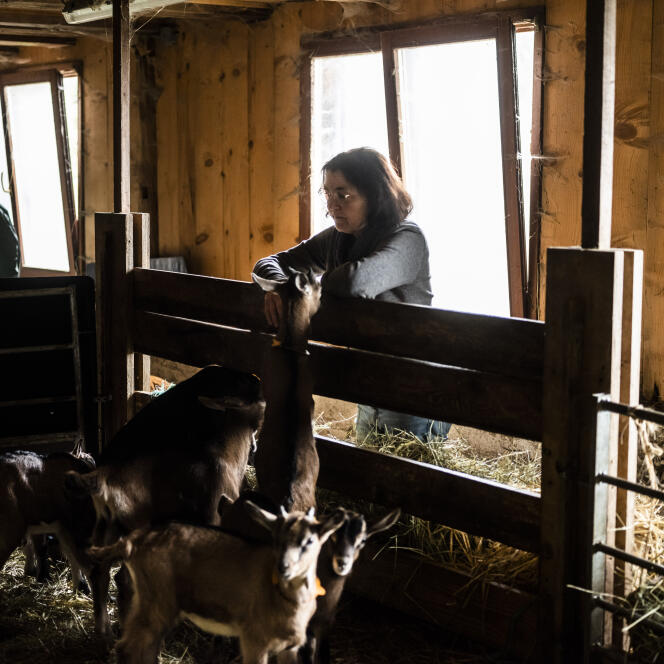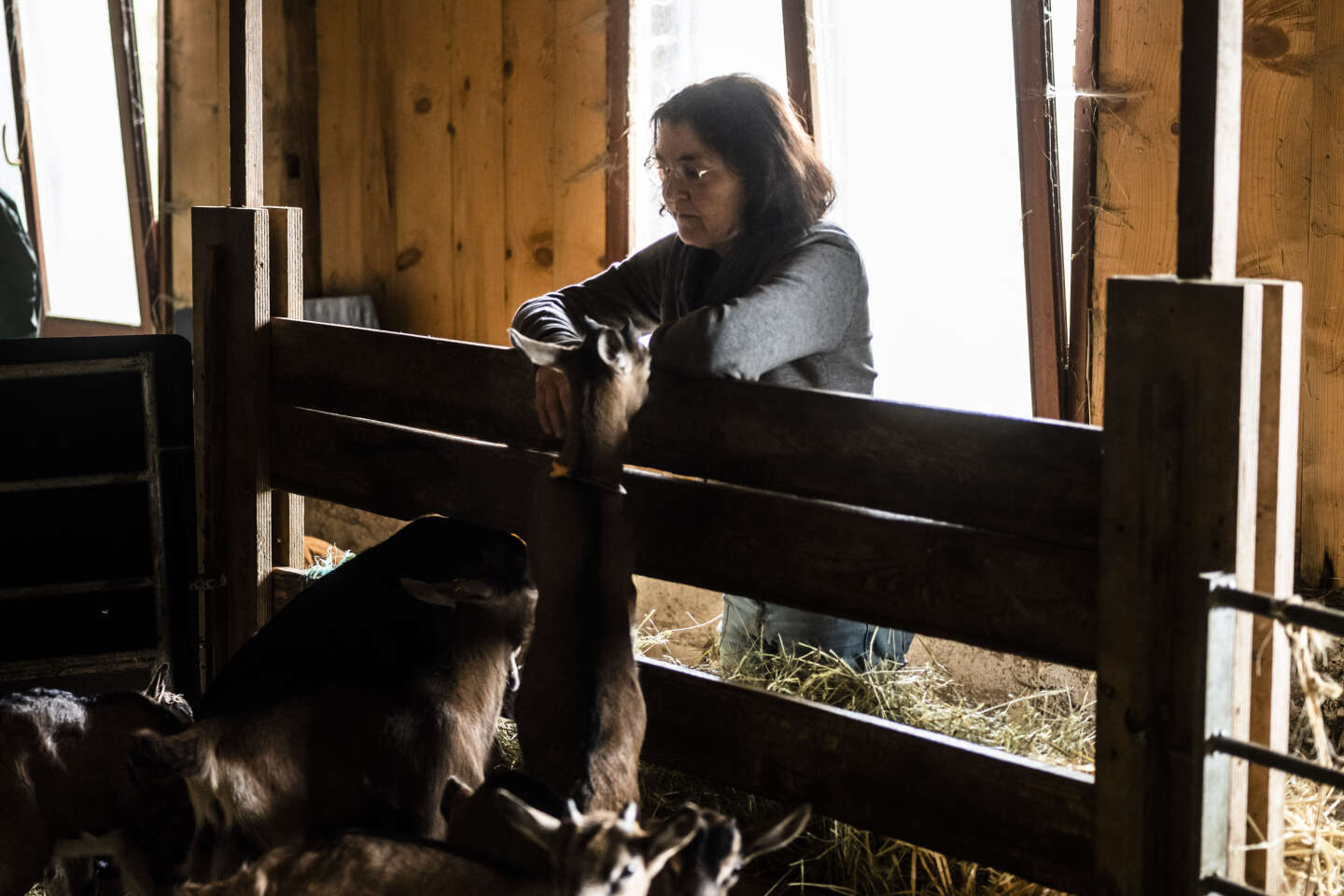
It is the year 1972: the Bertrand dairy, in Haute-Savoie, is run by three single brothers, and their old father is torn in two by a lifetime of work. We tirelessly mow the meadows by hand to feed the 100 heads of livestock, we crush the stones to create the slab of the future stable, a novelty in the region. No women, no holidays, no entertainment. The preparation of Reblochon, the local specialty, requires daily work.
In 1997, due to the lack of direct heirs, Patrick, a nephew, and his wife Hélène, took over the business. Tractors, trailers, cars appear. Hélène sometimes takes a day off during which” bored “. Fifty years later, in 2022, the family chooses to invest in milking robots, so as not to have to “employ people”explains Marc, Hélène and Patrick’s son, who refuses to become one “manager” like many farmers now.
His partner, Alex, does not come from the agricultural world; he was a metalworker. The wives of the two men, however, do not work on the farm, but in the city. Of their children, say Marc and Alex “who will do what they want”…Transferring the farm will not be an easy task, especially since the land and real estate pressure is very strong. About thirty kilometers from Geneva, “it is continually being built”, deplores Marc. How to preserve the agricultural territory and the profession in these conditions?
This half-century-long family history, told by Gilles Perret in the documentary The Bertrand Farmreleased January 31, tracks much of the developments that have occurred in rural France in recent times. The agricultural bill examined in the National Assembly from Tuesday 14 May, in addition to wanting to partially respond to the anger expressed at the beginning of the year, aims to draw some lessons from the transformations that have taken place over the last fifty years. A world that has experienced upheavals “fairly new” on a historical scale, according to Thierry Pouch, economist and researcher at the University of Reims Champagne-Ardenne, and of which the demographic collapse is undoubtedly the most evident manifestation.
A painful paradox: despite his essential role, recognized and praised by all, that of feeding his fellow man, the farmer is now almost invisible. Since 1982, in just over forty years, agricultural employment has been divided in three: it represented 7.5% of total employment in 1982, it would be 2.7% in 2022, according to data published by INSEE . Operating farmers are even fewer: they represented 1.6% of those employed in 2022. This is not only the socio-professional category that has suffered the strongest decline in the last period, but is now also the least represented, in a France where clerks and intermediate professions are the majority.
